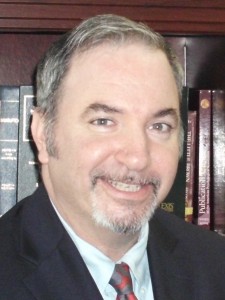By Mitchell J. Cohen

Attorney Mitchell J. Cohen
Non-citizens do not have the right to vote. The State of Florida has a reasonable interest in purging the voter rolls of any individuals who are not legally entitled to vote. The Department of Homeland Security recently agreed to provide Florida access to its databases, which Florida requested in order to determine who among the registered voters in Florida is not in fact a U.S. Citizen.
While that effort to safeguard our voter rolls may appear to be laudable, in point of fact, it is likely to result in bona fide U.S. Citizens being knocked off of the voter rolls, and disenfranchised immediately before a presidential election.
As a Florida attorney who has been practicing in the field of U.S. immigration law, I would like to educate the governor’s office about the perils of relying on DHS databases in purging the voter roles.
What the governor’s office does not understand is that the Department of Homeland Security’s records will not reflect all foreign born individuals who have now attained citizenship. This is not necessarily a result of poor record keeping, but rather, it is inherent in the fact that under U.S. immigration law, there is more than one pathway to U.S. Citizenship.
One way is for a permanent resident (“green card” holder) to file an application for naturalization, which if granted, will allow that person to take the oath of allegiance and be sworn in as a U.S. Citizen.
Another way that some green card holders become U.S. citizens is to acquire U.S. Citizenship automatically based on the naturalization of a parent. For example, an amendment to the Immigration laws passed under George W. Bush in 2000, entitled the Child Citizenship Act of 2000, in summary automatically bestows citizenship on permanent resident children who have one parent naturalize to U.S. citizenship prior to the child’s 18th birthday, provided that the child was in the custody of the U.S. citizen parent.
The status of U.S. citizen automatically arises without any requirement that an application for naturalization be filed on the child’s behalf. In fact, an individual who thus automatically becomes a U.S. citizen by operation of law does, if he wish, can straight out apply for a U.S. passport.
A passport application however is not filed with the Department of Homeland Security, but rather with the Department of State. These individuals would have no reason to file a naturalization application with the Department of Homeland Security’s USCIS, as they already are U.S. citizens.
When a permanent resident automatically acquires U.S. Citizenship by operation of law, this is not going to be automatically entered into the Department of Homeland Security’s files. His status will likely remain listed as a “permanent resident” with the USCIS.
Florida’s announced policy of vetting registered voters by simply reviewing DHS databases will place U.S. citizens of being unfairly purged from the voter rolls.
End result: Florida government’s facile view of our complex immigration and naturalization laws will likely disenfranchise many U.S. Citizens, and cast a pall over Florida elections once more.
Mitchell J. Cohen is an attorney in Hallandale Beach and Fort Myers, Florida , practicing in the area of U.S. Immigration and Nationality Law.

